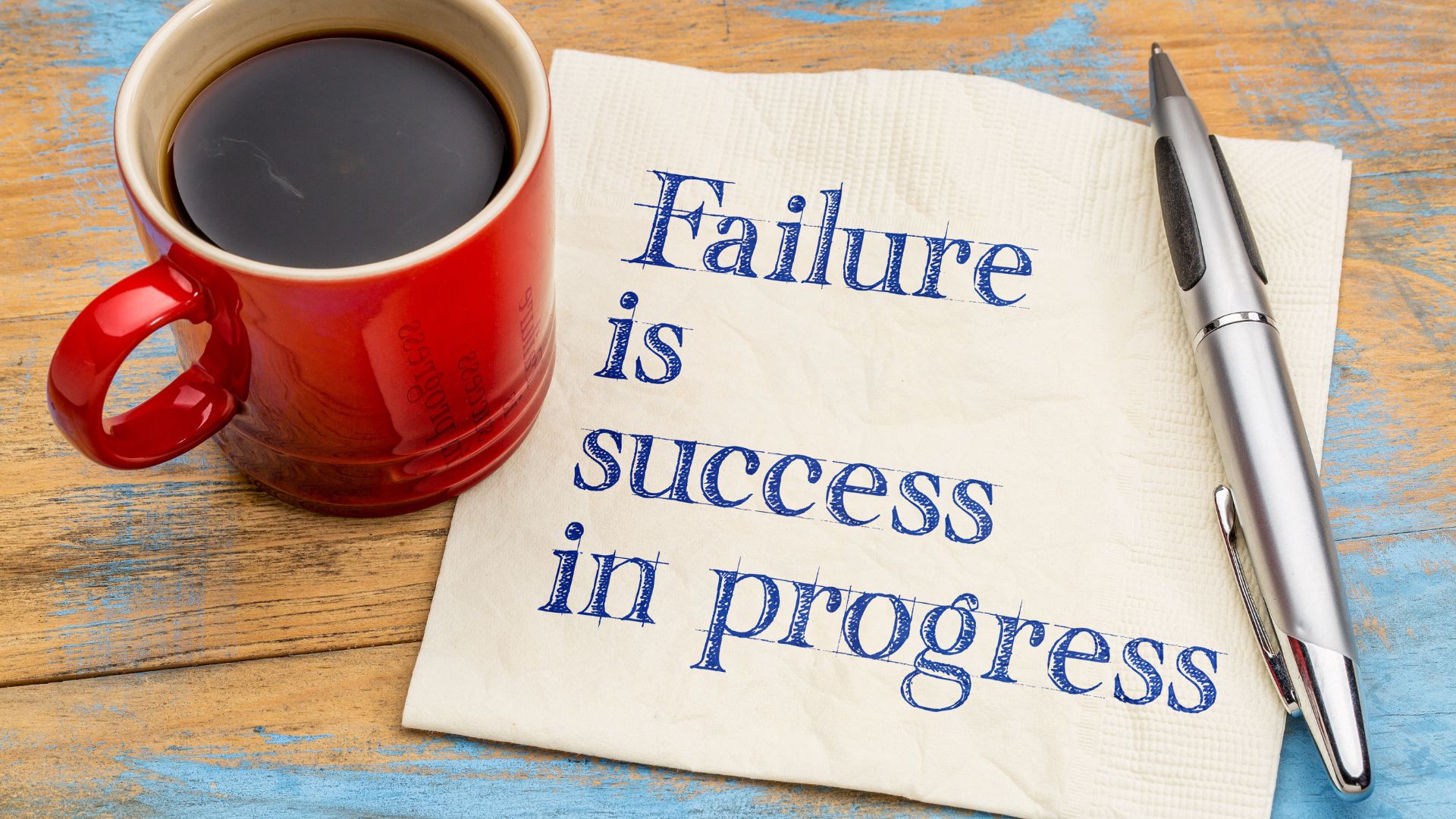
How Founders Can Overcome the Fear of Failure
Fear is over showing your confidence.
Fear of letting down your team, investors, or yourself keeps you stuck.
Founders with fear are common.
It is often deeply rooted in their psychology. Yet, it is controllable.
For many founders, fear of failure prevents them from exploring more opportunities. And sometimes, failed ventures sabotage their confidence. They fall into the pit hole of self-doubt. However, their ability to recollect a founder even after failure and restart evolves a founder into a change catalyst.
Understanding the impacts of fear and working on strategies to overcome it can help to lead the team and market as an example
How Fear Impacts Founders
Human needs for validation, success, and stability. Specially Founders who operate in high-stakes environments often feel that every decision carries the potential to define their reputation, financial future, and even personal identity.
This fear manifests in several ways.
One common example is decision paralysis, where the anxiety of making the wrong choice prevents leaders from making any choice. Founders may delay key product launches, hesitate to pivot when necessary or shy away from bold innovations. Over time, this cautious approach can become a habit or working style hindering growth. The worst part is that it impacts the business, making it vulnerable to competitors.
Fear increases the tendency to internalize failure. Founders may view a setback as a reflection of their personal inadequacy rather than a learning opportunity. This mindset fosters a negative cycle where fear leads to self-doubt, stifling creativity and risk-taking – qualities essential for entrepreneurship.
The psychological toll doesn’t stop at professional consequences; it often spills over into personal life. Sleepless nights, heightened stress levels, and strained relationships are common outcomes.
Studies have shown that entrepreneurs are at a higher risk for mental health issues like anxiety and depression, often driven by the constant pressure to perform and the looming fear of failure.
But why is failure so intimidating?
Part of the problem is societal expectations. Founders are often celebrated as visionaries, which creates an unspoken narrative: failure equates to incompetence. This is a myth. Some of the most successful entrepreneurs, from Jeff Bezos to Oprah Winfrey, encountered major failures before achieving their goals.
The difference lies in how they responded by reframing failure as an opportunity to grow rather than a personal shortfall.
Understanding this psychological impact is vital. Recognizing the signs of fear and its effects allows founders to take proactive steps toward managing it. After all, isn’t growth born out of discomfort?
12 Strategies for Managing Fear
Managing the fear of failure requires a proactive mindset and actionable strategies. For founders, this is not just about avoiding missteps; it’s about “controlling the controllables” and building resilience to face inevitable challenges. So, how can entrepreneurs tackle this ever-present anxiety?
1. Embrace Mindfulness Practices
Founders often juggle multiple priorities, making it easy for stress to spiral out of control. Mindfulness and meditation can provide a powerful way to regain focus. By dedicating even 10 minutes daily to mindfulness, founders can shift their perspective from fear of failure to clarity about their next steps.
The guidance of a trusted mentor can be the difference between stumbling and succeeding.
2. Seek Mentorship and Peer Support
Connecting with mentors offers invaluable insights, helping founders realize they are not alone in their struggles. Peer support is also a valuable source. Sharing experiences with seasoned entrepreneurs can provide reassurance and actionable advice.
3. Reframe Failure as a Learning Opportunity
Failures are assets. Founders must fail fast and pivot faster, adapting their strategies based on lessons learned. Leaders like Sara Blakely who credits their success to embracing mistakes as growth opportunities.
By reframing failure as feedback rather than defeat, founders can focus on continuous improvement. Failure, iteration, and evolution should be the success strategy.
4. Break Down Big Goals Into Smaller Milestones
Fear often feels overwhelming because founders focus too much on the end result. A practical way to counter this is to break larger objectives into manageable steps. Win the day by celebrating small victories. This approach keeps morale high and creates momentum, proving that progress is always within reach.
5. Prioritize Self-Care and Work-Life Balance
Only a strong can build a strong business- both mentally and physically. Founders often underestimate the role of physical and mental health in decision-making. Regular exercise, proper nutrition, and sufficient rest are not indulgences; they are investments in sustainable leadership.
By implementing these strategies, founders can transform their fear into a source of motivation. Isn’t it time to stop letting fear dictate outcomes and start using it as fuel for growth?
6. Building a Resilient Mindset
Fear of failure is as much about perception as it is about reality. To truly overcome this fear, founders need to focus on cultivating a resilient mindset—one that thrives under pressure and sees setbacks as part of the process. After all, isn’t entrepreneurship a long game, not a sprint?
7. Develop Emotional Agility
Emotional agility is the ability to adapt to challenges without being derailed by them. Founders can cultivate this trait by practicing self-reflection and questioning their emotional responses. Questions like
“Why am I feeling this way?”
“What’s the worst that can happen?”
shift the focus from emotion to strategy.
Emotional agility enables leaders to remain composed, even when the stakes are high. This also includes challenging all the negative self-talk and replacing it with the brighter side of the picture.
8. Foster a Culture of Experimentation
Fear not only troubles the founder but affects the whole team if any of the members fear to complete the jobs assigned to them. Overcoming fear should permeate the company culture.
When teams feel empowered to experiment without fear of repercussions, they innovate more effectively. Founders can model this behavior by being transparent about their own missteps and framing them as opportunities for collective growth. After all, doesn’t a leader’s attitude set the tone for the entire organization?
9. Make Calculated decisions
Fear often attacks strongly when the decisions are not supported by the data or research. Following the same strategy, even if it does not bring any reward, is decision paralysis. Keep an eye on the strategies, and dig into the data and numbers before making any decision.
10. Focus the Progress Over Perfection
Waiting for perfection is another kind of fear that holds the founders back from launching a new product or adopting any new strategy. Done it better than perfection is progress. Overcome the perfection phobia and follow the grit. Use the feedback to improve.
11. Build Teams with Top Talent
Being on a solo voyage of entrepreneurship is daunting. Doing every task, from decision-making to risk analysis, single-handedly not only creates mental pressure but also pumps fears.
Invest in attracting top talents. Delegate the tasks to team member’s strengths and skills. Create a loop of accountability. Use your time for high-level strategic priorities.
12. Develop a Backup Plan
Investing everything in a single plan/project boosts the fear of failure. Access all the downside risks and craft a contingency plan. A backup plan gives the confidence to move ahead.
Plan a revenue shortfall strategy ahead. Take employees and stakeholders in confidence.
By adopting these practices, founders can build mental toughness, making fear of failure less about avoidance and more about growth.
After all, isn’t a resilient mind the ultimate competitive advantage?
More Articles to Read
Overcoming the fear of failure is not about eliminating it entirely – it’s about learning to harness it.Fear is the igniting force for some founders. What determines the outcome? Perspective. Founders who view failure as a natural part of their journey are likelier to take calculated risks, innovate, and grow.
Overcoming failure is more about the shift in mindset that transforms fear into fuel for progress.
“What lessons will this teach me?” Analyse fear of failure with a new perspective.
After all, failure is a part of the process; overcoming it founders not only reduces anxiety but also builds the resilience needed to weather future challenges.




